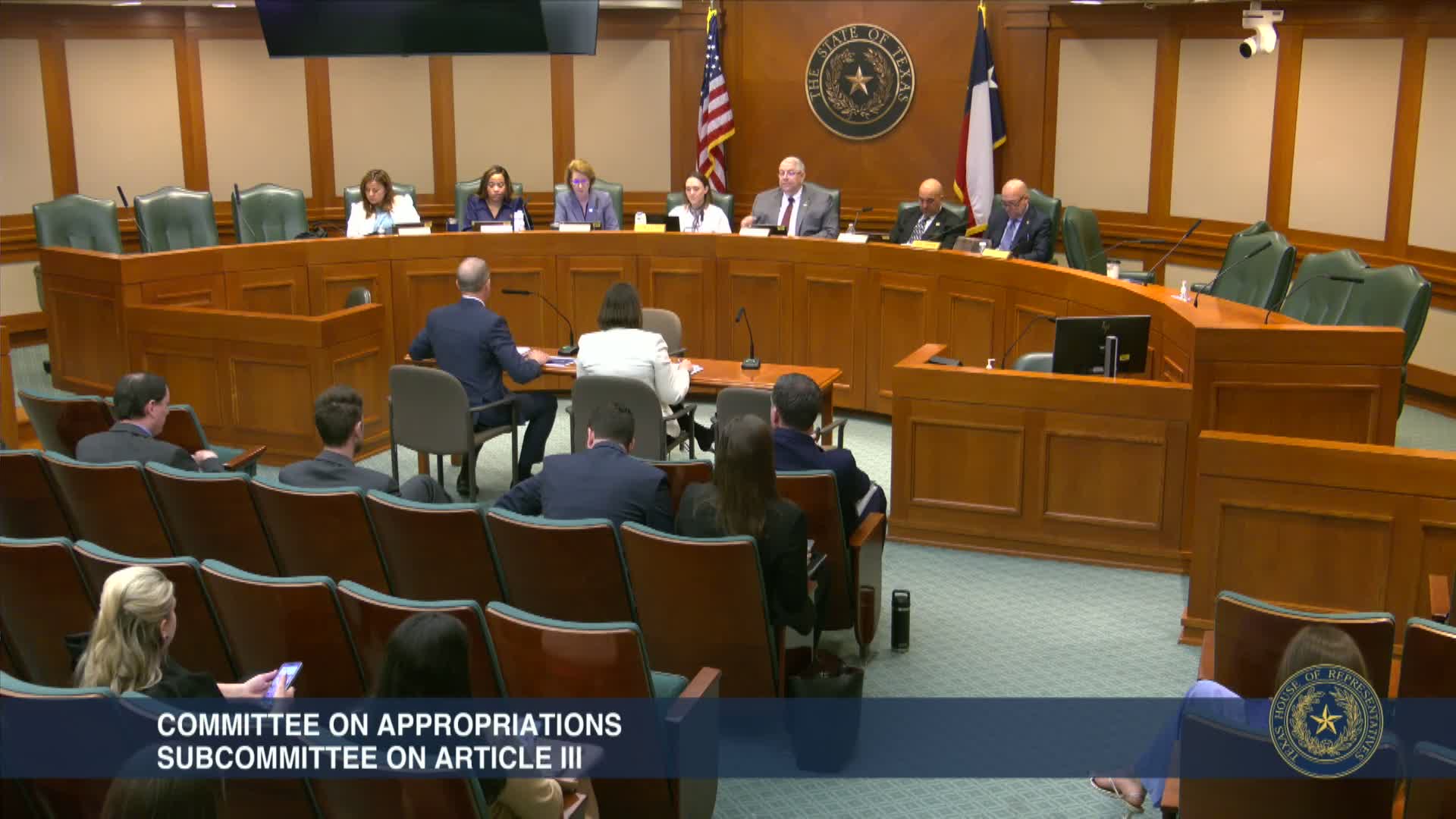Coordinating Board urges portability, predictability for student aid; recommends $364.3 million to cover 70% of eligible students
Get AI-powered insights, summaries, and transcripts
Subscribe
Summary
The Texas Higher Education Coordinating Board told the House Article III subcommittee that its strategic plan focuses on attainment, credential quality and research, and it requested about $364.3 million to make major need‑based financial aid programs cover roughly 70% of eligible students and to improve portability for transfers.
The Texas Higher Education Coordinating Board and its new leadership told lawmakers that the agency’s strategic priorities center on raising postsecondary attainment, ensuring credentials of value, and strengthening research infrastructure — and that these goals must be matched with predictable, portable financial aid.
“First, to increase post secondary attainment to 60% for Texans aged 25 to 64,” Commissioner Wynn Rosser told the subcommittee. “Today only about 48 percent of working age Texans have certificates or degrees beyond high school.”
Why it matters: the Coordinating Board is the state agency that supplies the data and programmatic guidance used to calculate formulas and financial aid. Agency leaders and the LBB’s Greg Owens presented recommendations and policy issues that affect formula inputs, the Texas University Fund (TUF), AUF/HEAF distribution questions and the implementation of House Bill 8 outcome‑based community college funding.
Student aid request and portability: Commissioner Rosser and the Coordinating Board asked for consideration of roughly $364,300,000 to “serve 70% of eligible students across our largest financial aid programs,” and to advance policy changes that would guarantee need‑based aid for top‑eligible high‑school students and to make need‑based aid portable for community college students who transfer to four‑year institutions. Rosser said the Coordinating Board seeks to “guarantee need based financial aid for eligible community college students when they transfer.” The board noted a Coordinating Board estimate — cited in the hearing — that about 3% of eligible students who transfer from two‑year to four‑year institutions receive Texas Grant funding after transfer, due largely to a timing and allocation issue.
Higher education funds and HEAF allocation: the Coordinating Board’s packet recommended maintaining AUF distributions in line with PUF yields and surface income allocations and described a study recommending doubling HEAF appropriations from $393.8 million to $787.5 million per fiscal year, a change contingent on the Legislature’s decennial HEAF allocation decision. The board also recommended contingency language tied to the Texas University Fund to allow deposits if new institutions become eligible.
Other items: the Coordinating Board described maintaining funding for programs implemented in the last session — including the Fast dual‑credit support (FAST transfers from the Foundation School Fund) — and highlighted the Texas Research Incentive Program contingency and several rider modifications.
Ending: board staff and Commissioner Rosser asked the committee to consider the coordination between formula calculations, data updates the board provides in spring, and legislative policy changes around aid portability and HEAF allocations; they said more detailed data updates will be provided to conferees in committee later in the session.
